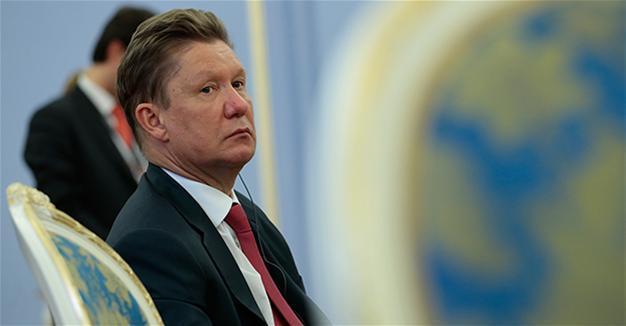Gazprom: Work on underwater section of Turkish Stream to begin in second half of 2017
MOSCOW

AP photo
Work on the underwater section of the Turkish Stream pipeline will get underway in the second half of next year, Alexei Miller, chief executive of Russian gas giant Gazprom, told journalists on Dec. 6, Reuters reported.Miller also said both lines of the underwater section, one that will ship gas to the Turkish market and one with gas destined eventually for Europe, will come on stream by the end of 2019. It has yet to be finally determined where the gas from the second line will come ashore in Europe.
Gazprom, Italian energy firm Edison, and Greek gas retailer DEPA in February signed a memorandum of understanding on natural gas deliveries via the Black Sea to Greece, and from Greece to Italy.
Gazprom, along with DEPA and Edison, will decide in December on the routes and delivery points into Europe, Miller said.
“In December ... we will make a decision how we will work. It’s about gas supplies via Turkey toward the Turkish-Greek border and construction of new pipelines on EU territory toward the south of Italy,” he added.
Miller also said he had discussed infrastructure options for delivering Russian gas to Europe, with top representatives from Italy’s ENI, in a meeting on Dec. 5.
Meanwhile, Russian Prime Minister Dmitry Medvedev said the Turkish Stream gas pipeline project, which was signed on Oct. 10 between Turkey and Russia, would soon be ratified in Russia too, in a joint press meeting with his Turkish counterpart Binali Yıldırım in Moscow on Dec. 6.
The statement came hours after the Turkish Stream agreement entered into force in Turkey when it was published in the Official Gazette on Dec. 6, after being passed in parliament and approved by President Recep Tayyip Erdoğan.
Gazprom for years had pushed its South Stream gas link project to allow it to ship gas directly to southern Europe while circumventing Ukraine. But it had to scrap the South Stream project because of an opposition from Brussels.
















